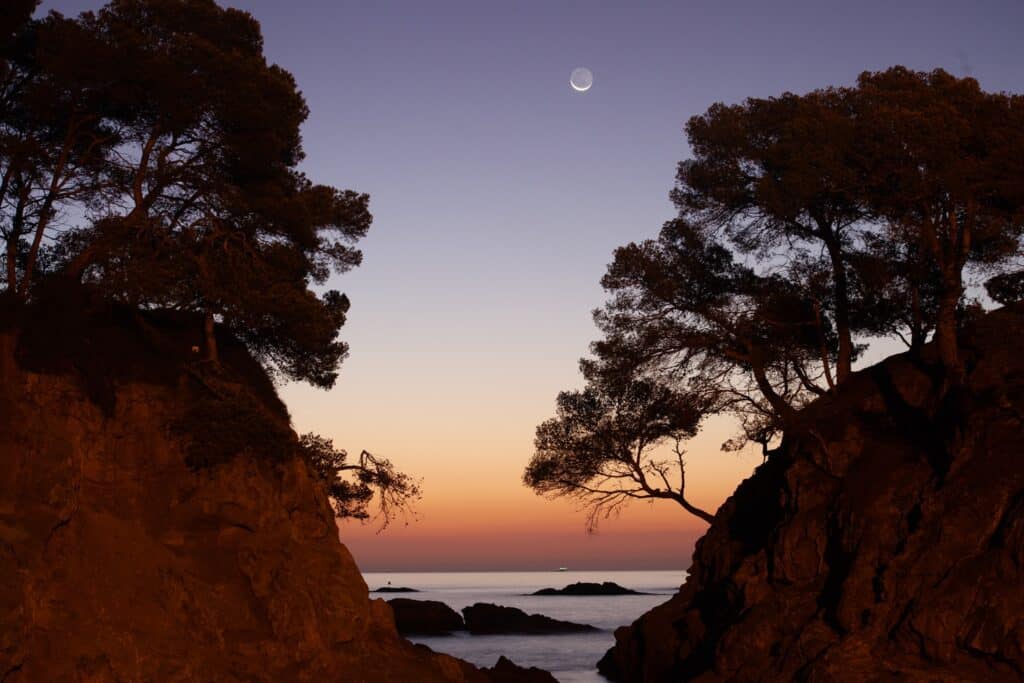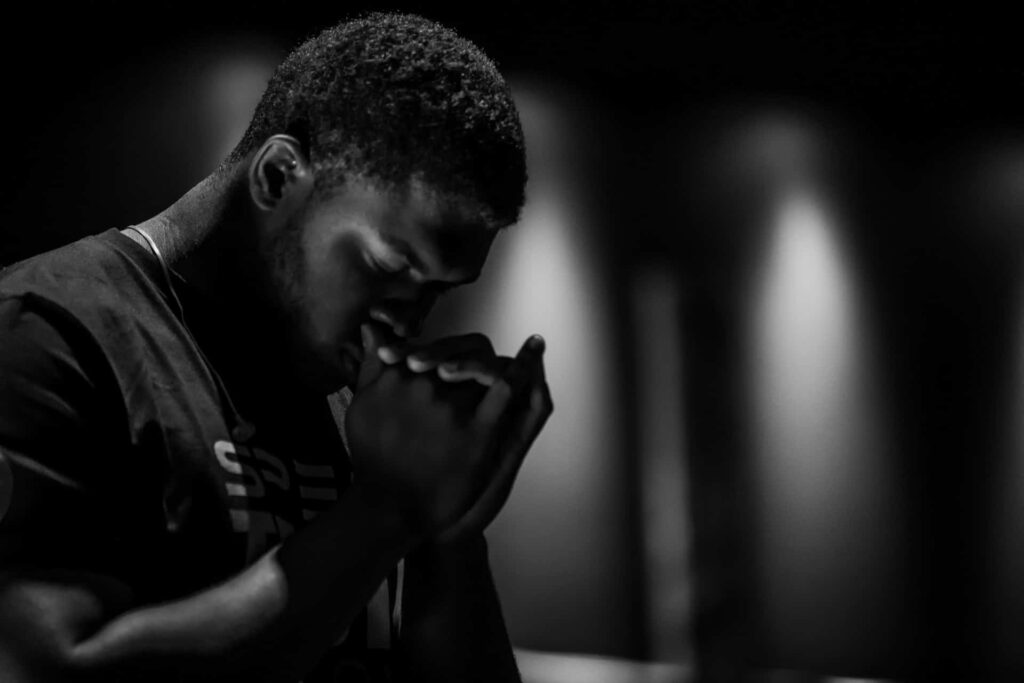I’ve been doing a lot of thinking about this whole idea of cause and effect, and it’s something that I think a lot of us invest in, but I’m not sure that we put a lot of time into actually considering
It’s one of those ideas that seems so obvious that it doesn’t really require we give it much thought and I want to take a moment to kind of break that down and see if, in fact, there isn’t something else that we can take away from the idea of cause and effect.
I’m going to be using fairly strict definitions of the notion in order to get my idea across.
And from the standpoint of statistical analysis, it’s my understanding that cause and effect are terms that are reserved for a one-to-one relationship between two happenings.
There is a cause, and in every case, that cause will result in a specific effect. Anything outside of that one-to-one correlation is exactly that: a correlation. And correlation, as they say, is not the same as causation.
We throw a rock at a window, for example, and the window breaks. This is one of those things that we probably don’t spend a lot of time thinking about.
The rock broke the window. The cause is pretty obvious. The rock hit the window and the window broke.
But falling back on this idea of that one-to-one association between the cause and the effect having to be in place each and every time for the rock to be understood as statistically causative is something that I think we can all safely question, because was the glass breaking the only possible outcome?
And of course, it wasn’t. The rock itself could have crumbled on impact. The rock could have bounced off of the glass. Those are a couple of possibilities in addition, of course, to breakage.
And so we can say safely, and accurately, that the glass breaking upon impact from the rock is an important correlation. It’s certainly one of multiple possibilities.
And I think we need to bring that thinking back into our own lives. There are actions and thoughts, ways that we behave that we may understand as causing certain effects in our lives, and this would be a mistake. It’s certainly an ascription of power beyond our very limited, finite capacities as created beings, and if it isn’t obvious at this point, I’ll make it plain: I am somebody that believes in a power greater than our own.
And as long as that belief is intact, I am necessarily limited in my understanding of just how far we can take this idea of causation.
And there are entire industries that are built on supporting the idea that we are, in fact, in charge of our destiny, that we can manifest certain things through force of will or meditative practices or just sort of concentrating on an image or whatnot. And it’s an illusion.
It’s a false assumption.
What it’s taking advantage of is the reality that life has patterns and that there are correlations that, with enough life experience, we can begin to make.
But we shouldn’t take that so far as to believe that we are the cause of those patterns or that those patterns can’t be interrupted. You see, it’s a double edged sword. If we believe that these patterns are immutable, if we believe that the things that we do exclusively cause the results that we experience, while that might feel immediately empowering and is certainly marketed as such, it’s also a de facto belief that patterns cannot be broken.
Because if something is understood to be a cause, it’s a cause 100 percent of the time.
And so if we find that we are stuck in a rut, we are going to believe that it is completely our responsibility to get out of that rut.
And while I don’t want to move away from the idea of personal responsibility and accountability, I also want to acknowledge that there are huge portions of the population that are in extremely dire circumstances and it has nothing to do with how they are behaving or the energy that they’re putting out into the world.
This idea of causation, of us manifesting our desires into the world, and the world somehow responding to that each and every time is, frankly, a really privileged understanding that is rooted perhaps in middle-class aspiration, moreso than a fully considered awareness of what life looks like for people around the world.
And so patterns exist and they should be acknowledged and, more than just acknowledgement, they should be learned from so that we can perchance navigate around these patterns that are recognizable. But we should never for a moment believe that we are in every case responsible for those patterns in their manifestation.
In our response to them? Absolutely.
Absolutely.
I’m not a scholar of my faith tradition. I’m a Muslim. I think that’s pretty apparent if you’ve been following the work of Dust and Tribe for a while. But I have heard the scholars refer to this, the world that we live in as dar al-asbab, the place of causes or reason, the place of associations. And it’s understood by those scholars that those patterns exist to bring us into a fuller awareness of our place.
And they can guide and they can mislead. And this is very much in evidence, in our faith tradition, where it is the Muslims understanding that it is only God that guides or misleads. And how God does that is almost exclusively mediated through creation with the exception of his prophet Moses, may His peace and blessings be upon him.
We are not aware of any person in history who has had direct communion with the Divine. In every case, it’s been mediated through creation and it would certainly be the case for us.
So we need to pay attention to patterns and we need to contextualize those patterns to align them with what we have been taught through revelation. That’s a body of knowledge that not everybody has access to. Or perhaps, to put it more accurately, everybody has access to, but not everybody accesses it. And this is where our choice comes in, our choice to access that information, to contextualize the patterns.
It’s like those secret decoder rings that used to be in cereal boxes back in the 50s. You see, there’s a whole set of patterns and it could probably be discerned, and with prodigious attempts at cryptography, you know, one might be able to actually break through those codes and understand what the secret message is.
It’s a bit of a Herculean effort to foist on a child who’s just trying to enjoy his breakfast. So why not put a decoder ring in there and . . . ?
Makes life a lot easier.
Revelation is that decoder ring, and here I want to say that it may not be for everybody to crack open scripture. It may not feel immediately intuitive to read a book, particularly if that book has been framed as problematic or antiquated or suspect, and it may not be entirely necessary to start that process with scripture. I will be one to submit that all of creation, all of creation helps to contextualize these patterns.
And that’s certainly a huge part of the work of Dust and Tribe: the wilderness teaches. Well, of course it isn’t actually the wilderness teaches. It’s God who teaches through the wilderness. But it’s obvious.
Once you step outside and you see that the trees are in community and the fungi are in community and the plants and the animals and the insects, they’re all in community and they all have interests that dictate the patterns that they live by. And the sun and the moon and the stars and the way that the rivers flow, always uphill going down, never the opposite.
And these are patterns, these are correlations. Can those patterns be interrupted? Absolutely. Absolutely.
You can do things to manipulate the environment and you will see those patterns change. It’s one of the issues now that we’re having with the climate: global warming. Human beings have introduced a series of behaviors that is now interrupting previously predictable patterns with increasingly unpredictable and, very likely, negative results for all of creation. And so patterns can be interrupted.
But whenever those patterns are interrupted, we need to understand that there is far more at play than those things that we would assume to be causative.
Remember, it’s always about correlation.
We can say, for example, research has drawn a conclusion that releasing carbon dioxide into the atmosphere causes the greenhouse effect, which then results in global warming. And we all move in the direction of reducing carbon emissions. Now, that seems like a reasonable correlation. But I’ll go on record as saying it would be a mistake to assume that as exclusively causational.
Let’s scale it back a little bit.
We understand, for example, smoking to be associated with lung cancer. This is a kind of internal pollution and we feel like we have our finger on the cause for that internal pollution: breathing smoke and all of its debris into the lungs. Well, you do it enough and it causes cancer, right?
Except that you may know (I certainly do) those men and women who have smoked the entirety of their lives and they don’t have cancer. And you may know (I certainly do) men and women who have lung cancer who have never touched cigarettes. We shouldn’t dismiss the pattern. The correlation exists, but it would be ignorance and arrogance to assume that all these things are causational.
From the standpoint of believers, there is only one cause, and that is the decree of God.
And we’re not fatalists. Certainly we’ve been accused of that (talking about the Muslims now), that we fall back on the idea that God is simply going to do what he’s going to do and we can’t do anything except kick our heels back and say, “well, that’s just the way it is.”
In fact, if I recall correctly, there is a narration within our tradition where a man was planting trees and he was asked, “What would you do if you knew that the end of the world was just around the corner?” And he said, “Well, I’d go ahead and plant this tree.”
And there’s a few reasons for that.
The things that we do are ultimately tied to our recovery journey. And what do I mean by recovery? I mean recovering our awareness of each of us being the creation of God, of being imbued with something of God’s Divinity. It’s something that makes us qualitatively different than all the rest of creation. And all of the things that we do must be an attempt to further that recovery.
And so when a man plants the tree knowing that the world is going to end at any given moment, what he’s essentially doing is not ignoring the correlation between the end of the world and the likelihood of his tree growing. What he’s doing is saying, “this is something that I intended to do with the pleasure of God in mind. And there is nothing about that goal that changes if the world ends. It is still the pleasure of God that I am seeking.”
That’s an important consideration, and especially for those of us who find ourselves in circumstances that are so far out of our control, we may easily give up on things. We may see ourselves as the cause of all the very difficult things that have unfolded in our lives. We may come to see ourselves, therefore, as irredeemable. We may believe that the actions that we take in the world are utterly useless because the world has responded to us with such vitriol and negativity and so many insurmountable challenges.
And clearly we, and our missteps and our shortcomings and our lack of understanding, is the cause of all of that.
And with that mindset, it’s really easy to give up. So look at the correlation. Sure, there may very well be things that we do that translate into outcomes that are less than desirable. And that may happen a lot of the time. But if it happens that way, it’s only because there is a merciful God that wants to wake you up to that correlation. It is He that is causing those circumstances.
It is He that is causing those circumstances as an opportunity for you to identify the patterns and reconsider your role in those patterns.
And that is why prayer is an essential part of the recovery process. It’s not enough to simply start waking up early. It’s not enough to simply start working out and to start eating better. It’s not enough to start reciting positive affirmations ad nauseum. It’s not enough to plug yourself into therapy and support and coaching and whatever other mental health improvements you want to take on.
It’s not enough. You are not going to change your circumstances, there is no such thing as cause and effect.
You are going to bring your awareness of those challenging patterns into your consciousness and you are going to shift your part of those patterns and you are going to pray that the Cause of all causes relents.
And it’s within our teachings that that is something that we can hope for, but it’s also within our experience to recognize that that is something that is up to God and God alone.
We are people who believe in miracles. Miracles, by definition, are those phenomena that manifest seemingly in contradiction to expected results.
And if you’re moving through the world using your rational brain to guide you, that can sometimes be difficult to appreciate. Reason and logic are important tools, particularly in view of grasping those correlational patterns that are so helpful to reconsider how we’re moving through the world. But reason and logic have limitations.
I cannot listen to music with my eyeballs. I cannot appreciate a sunset with my ears. There are faculties, and each of these faculties has a particular domain. Outside of that domain they’re useless.
We have overextended our logic and reason into domains where they simply don’t have any relevance. So the appreciation of a miracle, the appreciation of an effect that seems to manifest in complete contradiction to what would be expected using the logical and rational part of our brain, is something that can absolutely be appreciated by another dimension of our being. That intuitive dimension, that spiritual dimension, that dimension of ourselves that understands the importance of resignation, of saying, you know what, I don’t know, nor will I ever know all there is to know.
Balancing our logic and our reason with a measure of humility is crucial. And that is what is at the base of rejecting the idea of cause and effect.
It’s a hard thing to do because it puts you in the passenger seat.
And from our place in the passenger seat. I hope that we can grow to appreciate and admire and respect and honor and love our God who is clearly driving.
Leave a comment below for posterity or join us in the D&T Chautaqua Discord to discuss this post with other adventurous spirits from around the world.








3 Replies to “There Is No Such Thing as Cause and Effect”